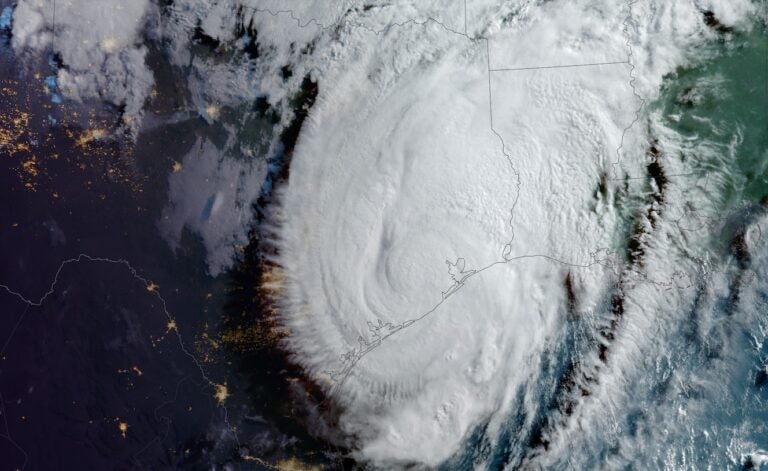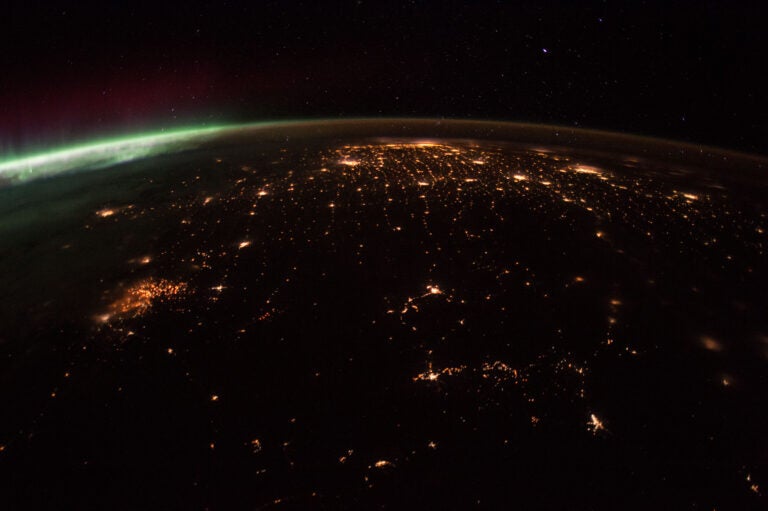This image of Opportunity’s 5,000th martian sunrise has been sonified and set to music to create a unique track.
Dr. Domenico Vicinanza and Dr. Genevieve Williams
To turn the photo into sound, researchers scanned across the image from left to right. They combined brightness and color from each individual pixel with information about the terrain’s elevation, then assigned each value a pitch and melody. As the image grows from dark to light from the edge to the center, the pitch of the music rises to “show” the bright disk of the Sun rising in the sky.
“Image sonification is a really flexible technique to explore science and it can be used in several domains, from studying certain characteristics of planet surfaces and atmospheres, to analyzing weather changes or detecting volcanic eruptions,” said Domenico Vicinanza of Anglia Ruskin University, one of the scientists responsible for the track, in a press release.“In health science, it can provide scientists with new methods to analyse the occurrence of certain shapes and colors, which is particularly useful in image diagnostics.”
Sonification is also a great way to listen to gravitational waves, which rise in pitch from low to high and end in a sudden chirp! as two black holes or neutron stars collide. Additionally, sonification could allow those with visual difficulties to enjoy astronomical — and everyday — images in a way previously inaccessible to them.
Together with fellow researcher Genevieve Williams of the University of Exeter, Vicinanza will present the new track at this week’s Supercomputing SC18 Conference in Dallas, Texas. They will play it using both audio speakers and vibrational transducers, which will allow listeners to “feel” the sunrise as well.
In a way, the piece is bittersweet — the Opportunity rover, which took the image February 15, 2018, remains silent following this summer’s massive Mars-encircling dust storm. Engineers continue to prompt the rover via radio signal, now that the skies above it have cleared to their pre-storm conditions and its solar panels should once again be able to receive sunlight.









